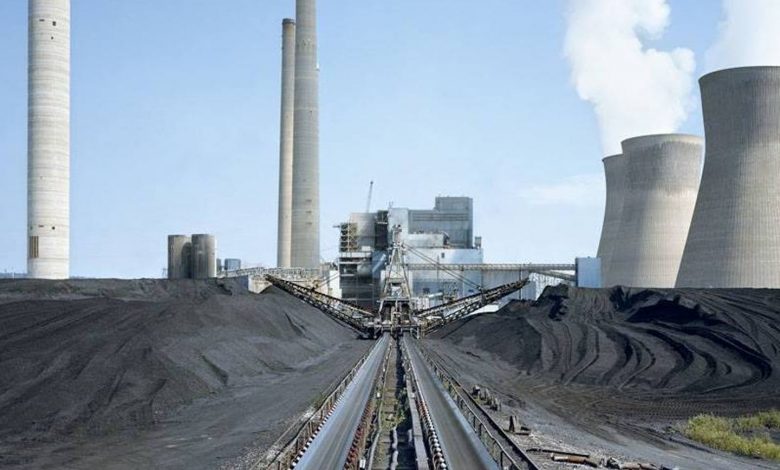G-7 Countries Have Committed To Deliver Climate Targets Ahead Of COP26

The G7 countries – UK, US, Japan, Canada, Japan, Germany, France, Italy, EU – have committed to deliver climate targets in line with the Paris Agreement’s 1.5C warming limit, agreed to phase out global support for fossil fuels and committed to zero carbon power sectors by the 2030s.
The result means Japan’s era as a major global coal investor is over, and will leave China isolated as the last major supporter of global coal.
The agreement comes days after the International Energy Agency (IEA) called for an end to new fossil fuel supply and said funding for oil, gas and coal needs to be stopped to ensure a climate-safe planet. The G7 represents an estimated 58% of global net wealth and 27% of global greenhouse gas emissions.
Jennifer Tollmann, Senior Policy Advisor, E3G said “Today’s G7 Climate and Environment ministers meeting is a step change from the last four years and lays the foundation for the G7 to become an engine for keeping 1.5 degrees (“safe levels of climate change”) in reach. That does not mean it’s perfect – a significant solidarity gap remains – around international climate finance, supporting green recovery, and addressing concurrent challenges around debt and vaccines access. Significantly increasing the support offer for non-G7 countries facing green transitions in the face of health and debt crises, as well as unambiguously phasing out not just coal but public finance for all international fossil investments have emerged as clear credibility tests going into the June G7 summit.”
Meeting ‘virtually’ under the chair of the UK, climate and environment ministers have agreed to commit to align govt policies to 1.5C and rally other major economies behind it.They have also committed to do emission reductions in the 2020s’, transition away from coal and decarbonise their power systems in 2030s.
Luca Bergamaschi, Co- Founder, ECCO (Rome-based think tank) said “The outcome marks the reset and relaunch of major Western powers cooperation for climate and nature. This could be the beginning of a positive
domino effect towards COP26. G7 climate Ministers are listening, now we need all G20 countries to do the same. This is a key step ahead of the next G7 Finance and Leaders meetings.”
The G-7 countries have agreed to stop international government support for thermal coal power generation by the end of 2021. They have also agreed to stop new international government support for fossil fuels to keep 1.5 within reach and to align public finance with Paris Agreement 1.5C goal in 2020s & ask all multilateral development banks (i.e. World Bank) “to join us in this effort” to deliver new climate finance support to developing
countries well ahead of COP26.
Bernice Lee, Research Director, Futures; Founding Director, Hoffmann Centre for Sustainable Resource Economy said “This G7 announcement leaves China alone as the only significant funder of overseas coal power plants. Beijing has already signalled it is quitting coal-funding in Bangladesh, and I think this will raise further questions over its export finance strategy. Does China really want to be the last one standing for an industry on its last legs?”
G-7 countries have also agreed on a global goal to reverse nature declines by 2030 and introducing policies and laws to reduce deforestation footprint of globally traded commodities.
Dave Jones, senior electricity analyst, Ember (London-based global energy think tank) said “The implications of the IEA are clear: stop all new coal power plant and mines investments now, phase-out coal by 2030, and achieve 100% clean power by 2035. Most G7 countries have already made pledges for 2030, and when they begin their implementation plans for these, they are likely to come to the conclusion: a coal power phase-out is the essential first step, and it quickly needs to be followed up with a gas power phaseout so that the entire power sector is decarbonised by 2035.”
The line on coal support we have seen is especially strong and if this is signed off it means with Korea and Japan quitting overseas coal support, China is isolated in SE Asia as the last major funder of overseas coal:
“international investments in unabated coal must stop now and commit to take concrete steps towards an absolute end to new direct government support for unabated international thermal coal power generation by the end of 2021”
This meeting is a hopeful start. However, ahead of the G7 finance meeting (4-5 June), and the Summit (11-13 June) countries should double their climate finance pledges and put together a support package for rolling out vaccination in the Global South. These two elements are crucial for a successful COP26.
Georgina Chandler, Senior International Policy Officer, Royal Society for the Protection of Birds (UK NGO) said “Ahead of two globally important negotiations for nature and climate, we needed a strong signal of tangible ambition from the G7. The G7 had a crucial opportunity to step up action for nature and climate and to do (as a minimum) two things: agree on a global goal to reverse nature declines by 2030 and introduce policies and laws to reduce the deforestation footprint of globally traded commodities.
England has just agreed to put a 2030 target to halt wildlife declines into law – this could be ground-breaking, and we should encourage other nations to put similar commitments into law. Protecting 30% of our land and seas is an incredibly important tool to secure natures recovery, but it is a means not an end, and on its own will not turn the tide of biodiversity loss. To secure a global agreement on nature this year, we need money and other financial instruments to help poorer nations fight their way out of covid and environmental chaos.”
Ruth Valerio, Director of Advocacy and Influencing at Tearfund said: “The G7 nations are among the most polluting in the world and their energy decisions are already creating hardship in the communities where Tearfund works. The commitment to phase out coal is desperately needed but G7 countries now need to stop support for all fossil fuels if we are to keep global heating below 1.5℃ and limit the impacts of the climate crisis on those who have done the least to cause it.”
Dr.Seema Javed is an Environmentalist, Independent Journalist & Strategic Communicator for Climate Change




